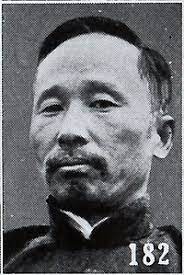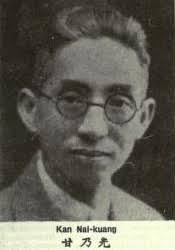Chu Teh 朱德 T. Yü-chieh 玉階 Chu Teh (18 December 1886-), commander in chief of the Chinese Communist forces for many years, became associated with Mao Tse-tung in 1928, when their forces combined to form the Fourth Red Army and to establish the central Communist base in Kiangsi. During the 1930's and early 1940's Chu […]







